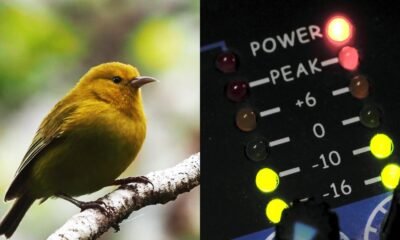AI Research
Supporting the future of AI Research in Africa and globally

Across Africa, communities are reimagining how AI can solve problems that matter. From climate resilience and agriculture to healthcare, education and local language access, the continent is already home to some of the most exciting work shaping the future of Research and AI.
With a young, fast-growing population and a culture of creative problem-solving, Africa brings essential perspectives to a technology that is rapidly reshaping the world. As AI continues to evolve, it is critical that African researchers, like our Google Research teams in Kenya and Ghana, developers, and organizations are equipped to lead.
That’s why this moment, driven by the continent’s growing AI momentum, is so important — and why Google is deepening our commitment to Africa’s AI future. Today in Accra, we announced a wave of AI support across Africa, representing $37 million in cumulative contributions — including previously committed but unannounced funding — to research, talent development, and infrastructure.
Advancing Research with African Context and Global Reach
At the heart of our new efforts is the AI Community Center in Accra. This space will serve as a hub for learning, experimentation, and interdisciplinary collaboration. It will host technical workshops, research exchanges, and community events that bring together students, developers, entrepreneurs, artists, and civil society to explore how AI can respond to African needs.
Impactful research starts with the communities it seeks to serve. Our latest initiatives, including $25 million from Google.org toward the AI Collaborative: Food Security, will help further that. This effort supports African researchers and nonprofits developing AI tools that improve hunger forecasting, strengthen crop resilience, and support smallholder farmers with real-time, actionable insights.
Language inclusion is also central to responsible AI development. Google.org is supporting the Masakhane African Languages AI Hub with $3 million to expand research and open-source tools across more than 40 African languages. By creating datasets, translation models, and voice technologies, this work is helping ensure that African languages are represented in the digital world.
To further strengthen the research ecosystem, we’re awarding $1 million each in research funding to two leading academic institutions advancing AI from Africa — the African Institute for Data Science and Artificial Intelligence (AfriDSAI) at the University of Pretoria and the Wits MIND Institute. These grants will support graduate students and postdoctoral researchers, expanding local capacity to contribute to and shape global AI development.
AI Research
NSF Plans New AI Research Operations Hub – MeriTalk

The National Science Foundation (NSF) said on Wednesday that it is looking to open a National Artificial Intelligence Research Resource Operations Center (NAIRR-OC) to arm the nation’s researchers and educators with critical AI tools and resources.
In a solicitation, NSF said that it is aiming to build on its National AI Research Resource (NAIRR) pilot by building sustained operational capabilities for NAIRR and broadening access to AI resources for the research community, which largely lacks the tools and resources “to investigate fundamental AI questions and train students.”
NAIRR was launched in January 2024 and serves as a shared national infrastructure to support the AI research community and power responsible AI use.
“The NAIRR Operating Center solicitation marks a key step in the transition from the NAIRR Pilot to building a sustainable and scalable NAIRR program,” said Katie Antypas, director of the NSF Office of Advanced Cyberinfrastructure.
“We look forward to continued collaboration with private sector and agency partners, whose contributions have been critical in demonstrating the innovation and scientific impact that comes when critical AI resources are made accessible to research and education communities across the country,” continued Antypas.
Specifically, NSF’s solicitation asks for proposals to create a community-based center to oversee “the development of the overarching framework, operations strategy and management structure needed to support the NAIRR’s scaling and growth.”
That includes integrating advanced computing and data resources, a centralized web portal with access to tools, and collaborating with partner organizations, while conducting outreach and engagement with the national AI research community.
NSF said that the NAIRR-OC will directly carry out priorities in the Trump administration’s AI Action Plan, released in July, which said that the federal government should “build the foundations for a lean and sustainable NAIRR operations capability that can connect an increasing number of researchers and educators across the country to critical AI resources.”
Since NAIRR’s launch, it has connected 400 research teams with computing platforms, datasets, software, and models, and is partnering with 28 industry members and supported by 14 federal agencies, according to NSF.
AI Research
Harnessing AI to unlock the power of data for business success

AI Research
Greek humanoid Olympiad reveals robots are far behind artificial intelligence — OODAloop

Greece recently witnessed the world’s first International Humanoid Olympiad in Olympia, where humanoid robots played boxing and soccer matches to attain glory. The event, held from August 29 to September 2, was organized by Acumino and Endeavor, who invited industry leaders to line up as speakers, apart from the smart machines displaying their abilities. While humanoid robots have increasingly gained popularity for mirroring human actions, we have yet to see them involved in routine household chores like washing dishes and tidying closets. AI has advanced explosively in the past year through applications like ChatGPT, but the same cannot be said about its physical cousins – the humanoid robots. Humanoid robots are miles behind in learning from data compared to AI software and tools. Minas Liarokapis, a Greek academic and startup founder who organized the Olympiad, made a rather bold prediction regarding humanoids becoming a helping hand in the kitchens and other household chores. “I really believe that humanoids will first go to space and then to houses … the house is the final frontier,” she told the Associated Press (AP) on Tuesday.
Full report : Humanoid robots lack data to keep pace with explosive rise of AI.
-

 Business5 days ago
Business5 days agoThe Guardian view on Trump and the Fed: independence is no substitute for accountability | Editorial
-
Tools & Platforms3 weeks ago
Building Trust in Military AI Starts with Opening the Black Box – War on the Rocks
-

 Ethics & Policy1 month ago
Ethics & Policy1 month agoSDAIA Supports Saudi Arabia’s Leadership in Shaping Global AI Ethics, Policy, and Research – وكالة الأنباء السعودية
-

 Events & Conferences4 months ago
Events & Conferences4 months agoJourney to 1000 models: Scaling Instagram’s recommendation system
-

 Jobs & Careers2 months ago
Jobs & Careers2 months agoMumbai-based Perplexity Alternative Has 60k+ Users Without Funding
-

 Education2 months ago
Education2 months agoVEX Robotics launches AI-powered classroom robotics system
-

 Funding & Business2 months ago
Funding & Business2 months agoKayak and Expedia race to build AI travel agents that turn social posts into itineraries
-

 Podcasts & Talks2 months ago
Podcasts & Talks2 months agoHappy 4th of July! 🎆 Made with Veo 3 in Gemini
-

 Podcasts & Talks2 months ago
Podcasts & Talks2 months agoOpenAI 🤝 @teamganassi
-

 Education2 months ago
Education2 months agoAERDF highlights the latest PreK-12 discoveries and inventions





















